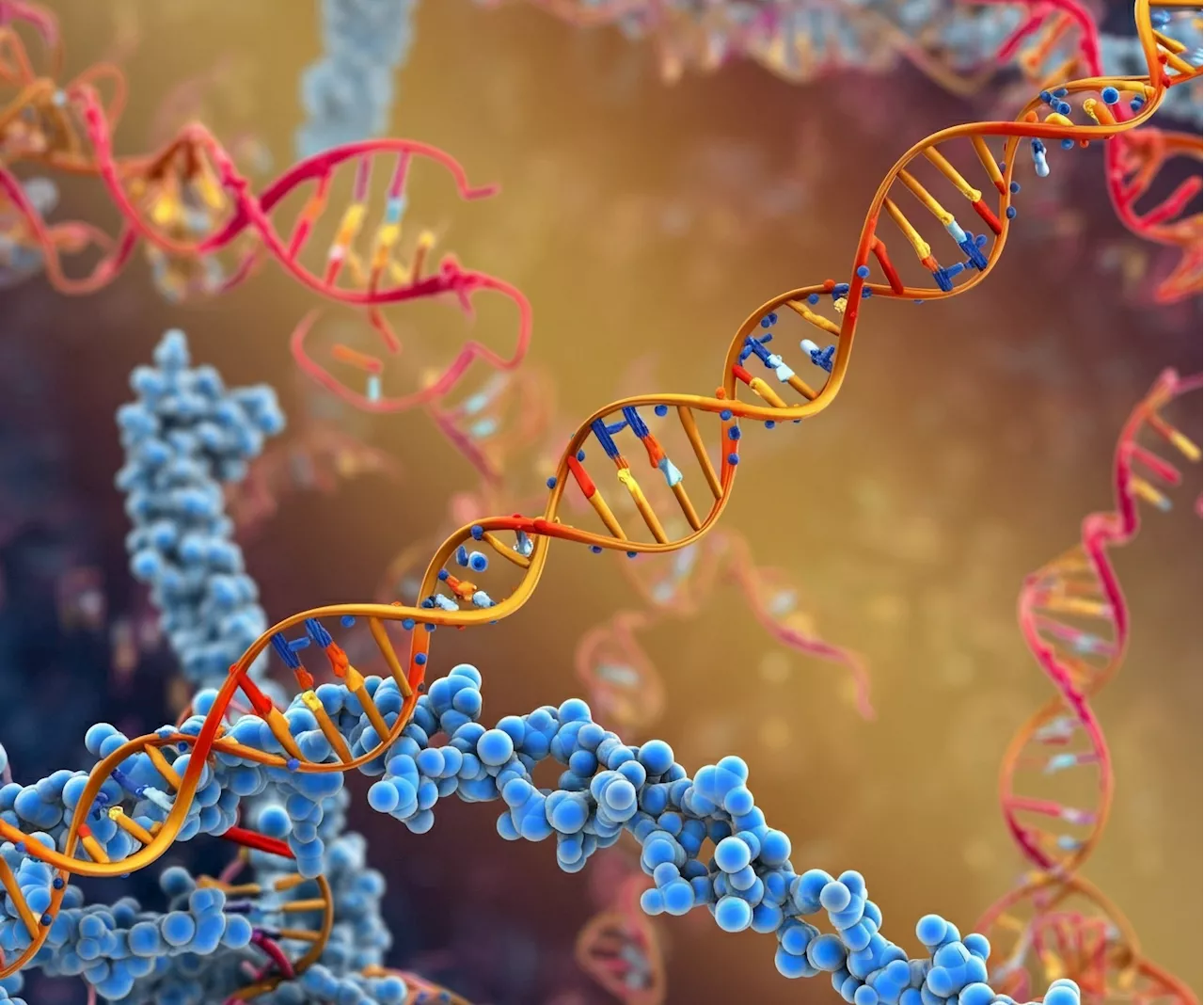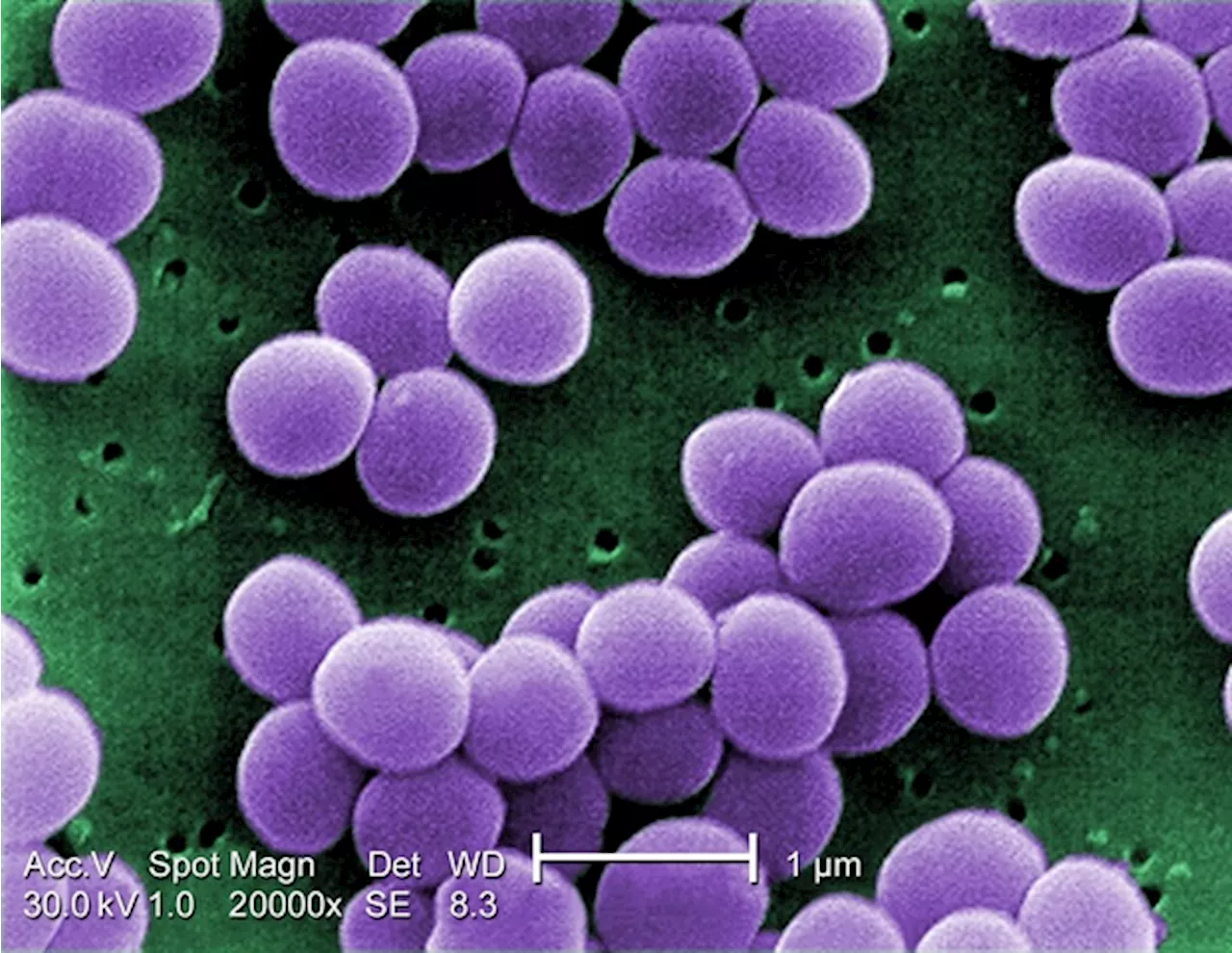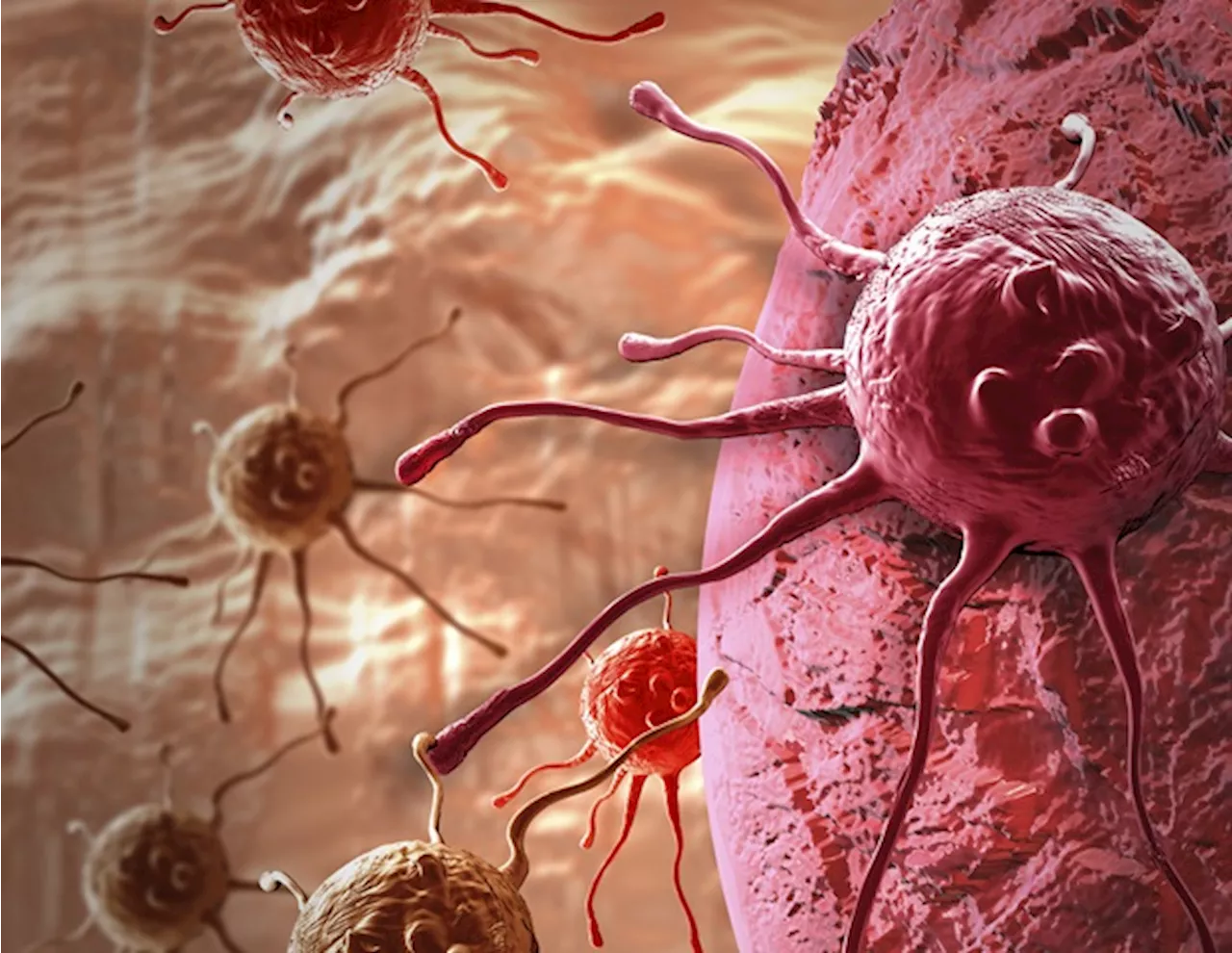Scientists at the Johns Hopkins Kimmel Cancer Center have identified 16 genes that breast cancer cells use to survive in the bloodstream after they've escaped the low-oxygen regions of a tumor.
Johns Hopkins MedicineNov 5 2024 Scientists at the Johns Hopkins Kimmel Cancer Center have identified 16 genes that breast cancer cells use to survive in the bloodstream after they've escaped the low-oxygen regions of a tumor. Each is a potential therapeutic target to stop cancer recurrence, and one – MUC1 – is already in clinical trials. Deep in a tumor, full of rapidly dividing cells, cancer cells are faced with a lack of oxygen, a condition called hypoxia.
In laboratory studies, Gilkes' team color-coded hypoxic cells green, then applied a technique called spatial transcriptomics to identify which genes were turned on in the perinecrotic region, and that stayed on when the cells migrated to more oxygenated tumor regions. They compared cells in the primary tumors of mice with those that had entered the blood stream or the lungs. A subset of hypoxia-induced genes continued to be expressed long after cancer cells escaped the initial tumor.
Related StoriesAs part of their research model, Gilkes and team blocked MUC1 using a compound called GO-203 to see if it would reduce the spread of breast cancer cells to the lung. Their aim was to specifically eliminate aggressive, post-hypoxic metastatic cells.
Hypoxia Breast Cancer Genes Laboratory Metastasis Oncology Oxygen Ph Research Tumor
United Kingdom Latest News, United Kingdom Headlines
Similar News:You can also read news stories similar to this one that we have collected from other news sources.
 New Johns Hopkins study shows digital tools help prevent obesity in high-risk young childrenA study co-led by a Johns Hopkins Children's Center clinician-researcher shows that adding text messaging and other electronic feedback to traditional in-clinic health counseling for parents about feeding habits, playtime and exercise prevents very young children from developing obesity and potentially lifelong obesity-related problems.
New Johns Hopkins study shows digital tools help prevent obesity in high-risk young childrenA study co-led by a Johns Hopkins Children's Center clinician-researcher shows that adding text messaging and other electronic feedback to traditional in-clinic health counseling for parents about feeding habits, playtime and exercise prevents very young children from developing obesity and potentially lifelong obesity-related problems.
Read more »
 Johns Hopkins study offers new hope for wet AMD patientsA new study from researchers at Wilmer Eye Institute, Johns Hopkins Medicine explains not only why some patients with wet age-related macular degeneration (or 'wet' AMD) fail to have vision improvement with treatment, but also how an experimental drug could be used with existing wet AMD treatments to save vision.
Johns Hopkins study offers new hope for wet AMD patientsA new study from researchers at Wilmer Eye Institute, Johns Hopkins Medicine explains not only why some patients with wet age-related macular degeneration (or 'wet' AMD) fail to have vision improvement with treatment, but also how an experimental drug could be used with existing wet AMD treatments to save vision.
Read more »
 Scientists Build New Computer Simulation To Understand Brain DevelopmentResearchers at the University of Surrey have developed a new computer simulation to model how our brains develop and grow neurons. The simulation uses real neuron growth data and a technique called Approximate Bayesian Computation (ABC) to ensure accuracy. This breakthrough could lead to advancements in neurodegenerative disease research and stem cell therapy.
Scientists Build New Computer Simulation To Understand Brain DevelopmentResearchers at the University of Surrey have developed a new computer simulation to model how our brains develop and grow neurons. The simulation uses real neuron growth data and a technique called Approximate Bayesian Computation (ABC) to ensure accuracy. This breakthrough could lead to advancements in neurodegenerative disease research and stem cell therapy.
Read more »
 Scientists reveal how miRNAs shape cancer and offer new paths for treatmentReview explores how microRNAs (miRNAs) interact in cancer development, their potential in diagnosis, and innovative therapeutic strategies, including overcoming chemotherapy resistance.
Scientists reveal how miRNAs shape cancer and offer new paths for treatmentReview explores how microRNAs (miRNAs) interact in cancer development, their potential in diagnosis, and innovative therapeutic strategies, including overcoming chemotherapy resistance.
Read more »
 Scientists uncover new MRSA resistance mechanismScientists have discovered the mechanism which allows the superbug Methicillin Resistant Staphylococcus aureus (MRSA) to become highly resistant to antibiotics, paving the way for new approaches to control infectious disease.
Scientists uncover new MRSA resistance mechanismScientists have discovered the mechanism which allows the superbug Methicillin Resistant Staphylococcus aureus (MRSA) to become highly resistant to antibiotics, paving the way for new approaches to control infectious disease.
Read more »
 Researchers develop new approach to predict immunotherapy response in breast cancer patientsUsing computational tools, researchers from the Johns Hopkins Kimmel Cancer Center and the Johns Hopkins University School of Medicine have developed a method to assess which patients with metastatic triple-negative breast cancer could benefit from immunotherapy.
Researchers develop new approach to predict immunotherapy response in breast cancer patientsUsing computational tools, researchers from the Johns Hopkins Kimmel Cancer Center and the Johns Hopkins University School of Medicine have developed a method to assess which patients with metastatic triple-negative breast cancer could benefit from immunotherapy.
Read more »
